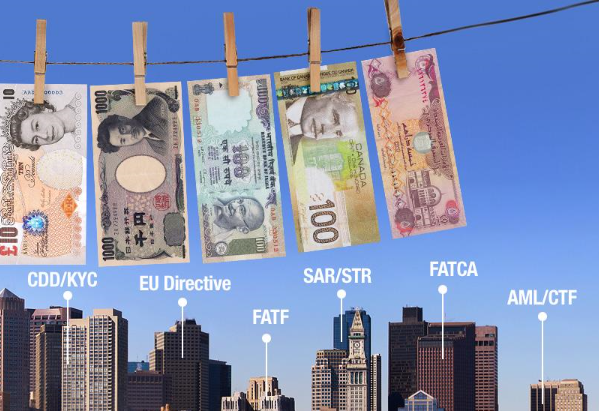Uncategorised
NCA has South Sudanese PEPs on its radar, but are amber alerts enough?

The United Kingdom’s National Crime Agency, on behalf of the National Economic Crime Centre and the Foreign and Commonwealth Office, has issued an 'amber alert' about finances emanating from South Sudan. This, and its lacklustre pursuit of unexplained wealth orders, suggests that it is ambivalent about corruption involving 'politically exposed persons.'
Many people from the political and military elite have used their positions to loot the country’s natural resources, including revenues from oil and gas, to enrich themselves and fund the fighting that has engulfed the country. Every facet of a failed state is to be found there.
The British authorities want financial institutions to watch out for the following danger signs or 'red flags' that might bespeak the use of dirty money on behalf of such PEPs who come to the UK, noting that no single transactional red flag necessarily denotes suspicious activity.
- The use of third parties when it is not normal business practice.
- The use of third parties when it appears to shield the identity of a public official or corrupt foreign PEP.
- The use of family members, including young children or close associates (here it is wise to include nephews and nieces), as legal owners or controllers. The use of corporate vehicles (legal entities and legal arrangements) to obscure (i) ownership, (ii) involved industries, or (iii) countries.
- The use of companies that have joint South Sudanese beneficial ownership and foreign beneficial ownership with interests in multiple government-controlled industries, especially mining, oil, public-sector procurements and construction.
- South Sudanese companies with business partners in overseas jurisdictions.
- The development of joint ventures, including special-purpose vehicles or SPVs, with foreign companies.
- Declarations of information from non-Sudanese PEPs that are inconsistent with other available information, such as publicly available declarations about assets and published official salaries.
- The PEP, family member, associate or enabler seeks to make use of a service that would not normally be targeted at foreign, wealthy clients.
- The PEP, family member, associate or enabler moves funds to and from countries with which he does not appear to be affiliated.
- The PEP, family member, associate or enabler has substantial authority over or access to state funds and assets, operations and policies.
- The PEP, family member, associate or enabler has ownership interest in or otherwise controls a foreign financial institution or corporation that is a counterparty or correspondent in a transaction, including outsourcing arrangements.
- Transactions involving government contracts are directed to companies that operate in an unrelated line of business (e.g. payment for food import contract directed to textiles company).
- Transactions involving government contracts that originate with, or are directed to, shell corporations, general “trading companies,” or companies that appear to lack a general business purpose. It is up to the bank to decide whether any of these entities answers to that description.
- Transactions involve overpayment for invoiced goods or the goods themselves are clearly and grossly over-priced.
- Documents corroborating transactions involving government contracts (e.g. invoices) that include charges that are at significantly higher prices than market rates or that include overly simple documents or lack traditional details (e.g. valuations for goods and services).
- Payments involving government contracts that originate from third parties that are not official government entities (e.g. shell companies).
- Transactions involving entities or assets expropriated or taken over by corrupt regimes, including individual senior foreign officials or their associates.
- Transactions involve transfers of funds or assets between companies with same ultimate beneficial owners or controllers (related-party transactions). n Transactions involve the movement of funds between accounts without an apparent business rationale.
- Evidence of more than one company operating from the same address.
- Transactions involving public contracts that have been awarded to companies ultimately owned or controlled by individuals responsible for awarding contracts.
- PEPs, influential public officials and military officers holding multiple private interests in addition to their public functions.
Britain's few UWOs, two years on
It is this last point that is the most telling. After years of overlooking fabulous wealth held by the offspring of quarter-century-long third-world office-holders who are themselves even more fabulously rich, is the UK about to turn a corner?
Evidence suggests that this might be happening but very slowly, as the NCA has just issued probably only the fifth “unexplained wealth order” in history, even though such orders (along with “interim freezing orders”) came into force in January 2018. Such a glacial pace bespeaks profound lethargy and a reluctance to rock varous diplomatic boats.
A court can make a UWO that pertains to any property of more than £50,000 in value, wherever in the world it is, if it has reasonable cause to believe that someone has an interest in it and reasonable grounds to suspect that he could not have obtained it without using dirty money. He must also be a PEP from (until December this year at the latest) outside the European Economic Area or there must be reasonable grounds to suspect that he is involved in serious crime that has a close connection with a PEP or a serious criminal.
The £80 million property - a mansion - that a court has just placed under the latest UWO belongs to Nurali Aliyev, 35, the grandson of a previous ruler of Kazakhstan named Nursultan Nazarbayev. Aliyev denies all wrongdoing. His father, Rakhat Mukhtaruly Aliyev, was married to the president's daughter, ran the tax police and secret service and was found dead in his prison cell in 2015. He was accused of kidnapping two managers of Nurbank in 2007 whose bodies surfaced in 2011.
The UK only deployed its first UWO in July last year. NCA alerts are only amber or red.